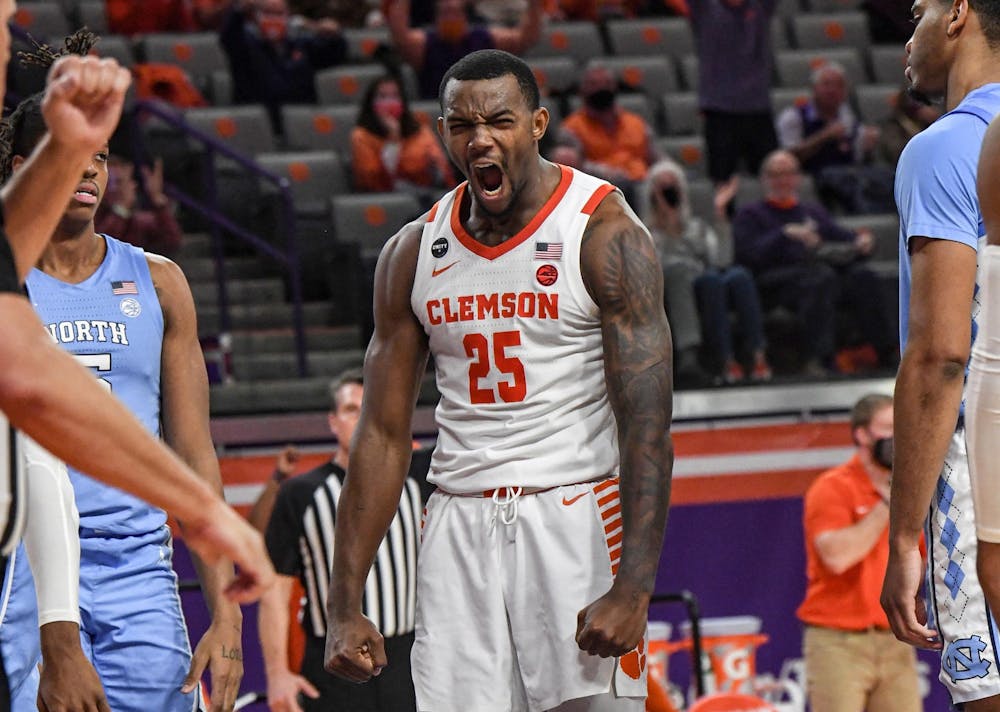North Carolina basketball is known for 60 years of excellence, and for playing a beautiful, unselfish game. Usually that generosity stops short of handing the opposing team the ball. Even the ever-magnanimous Dean Smith would probably have wagered that would be a bridge too far.
Yet that's exactly what the Tar Heels did on nearly a quarter of their possessions in their 63-50 loss against Clemson on Tuesday night. UNC held the ball a season-low 72 times throughout the game, and 17 times they simply gave it away.
That's a harsh simplification that doesn't give enough credit to the Tigers' defense, which is second-best in the ACC in points per game and forces the third-most turnovers. But it highlights just how needless many of the Tar Heels' blunders seemed to be, especially in the first half.
Passes thrown too high, or too far. Stepping out of bounds after forcing a turnover of their own. One time, Leaky Black threw a bounce pass in the corner to no one at all. Every way North Carolina could relinquish possession short of standing still and holding out the ball for an opposing Tiger to take, it did.
"Coach Smith used to say that turnovers are usually selfishness, which means that guy's trying to make a great play, or carelessness," head coach Roy Williams said. "And I think some of them were selfishness, but more of them were carelessness."
Turning the ball over has been an issue for North Carolina this entire season — the team came into the game on Tuesday averaging just under 15 a game. That's not good, but it's not as back-breaking when the Tar Heels manage to play how they'd like to: crashing the offensive glass and zooming down the court to try and score as quickly as possible.
The glass has certainly been crashed for the past couple of games, and while the pace Williams prefers has often been out of reach this season, it's been enough for UNC to win six out of its last seven, and go the distance with Florida State in its sole loss. Against Clemson, though, the boys in blue only had seven offensive rebounds and two in the first half.
Garrison Brooks put it plainly after the game: the problem is, fundamentally, just themselves.
What can they do better going forward?



